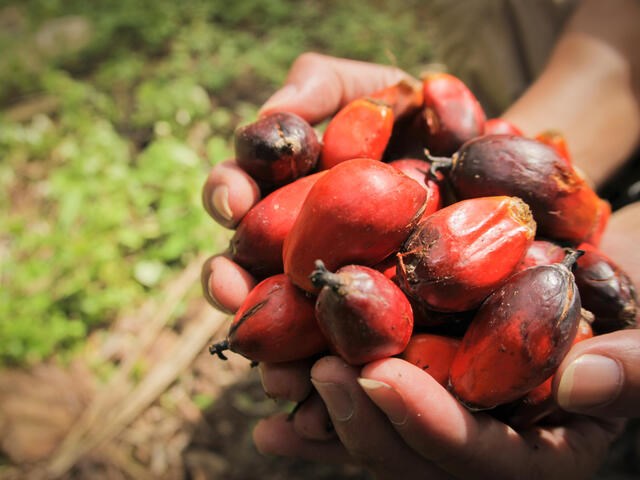Indonesia to ban palm oil exports
The country that provides more than half of the world's palm oil is taking protectionism measures to hold up its economy.
-

Fruit of oil palm trees. (WWF Malaysia)
Indonesia, the world's top palm oil producer, announced plans to ban palm oil exports on Friday - a shocking move that could contribute to the acceleration of global food inflation.
Palm oil is widely used in products such as cakes and cosmetics. The halting of cooking oil shipments in addition to the very raw material will raise packaged food producers' costs around the world, forcing governments to choose between using vegetable oil or biofuel.
Indonesia provides more than half of the world's global palm oil supply.
The Indonesian president, Joko Widodo, said he wanted to ensure that food products are available at home in the first place, especially after food inflation around the globe has been increasing to reach a record high, particularly after the war in Ukraine.
"I will monitor and evaluate the implementation of this policy so availability of cooking oil in the domestic market becomes abundant and affordable," he said.
The decision will particularly affect India, a top consumer of palm oil.
"This move is rather unfortunate and totally unexpected," said Atul Chaturvedi, president of Solvent Extractors Association of India (SEA), a trade body.
Other vegetable oil prices have also been on the increase as a result of the measure, which is bound to take place on April 28. Soybean oil rose 4.5%, reaching a record high of 83.21 cents per pound on the Chicago Board of Trade.
To keep domestic prices down, many countries are trying out crop protectionism - Argentina, for instance, the world's top exporter of soy, stopped selling soy oil in March before increasing the export tax rate from 31% to 33%.
The US Department of Agriculture urged international cooperation during the war in Ukraine, rather than export bans.

 2 Min Read
2 Min Read








